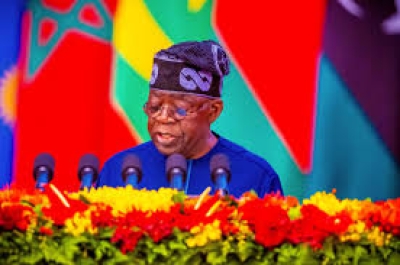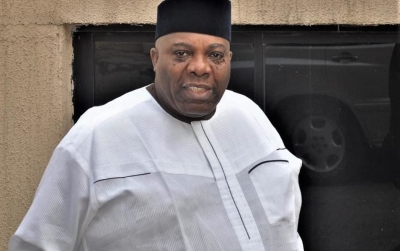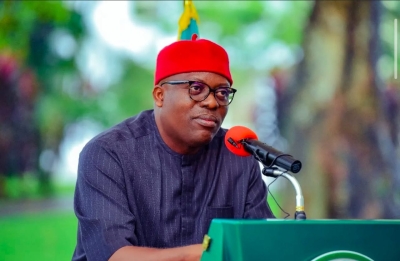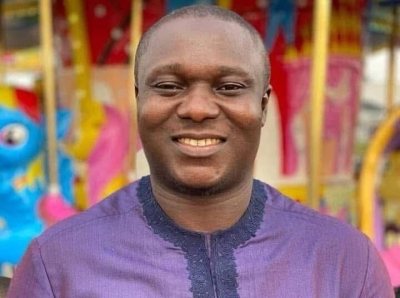
FEATURES
The Peoples Democratic Party (PDP) Governors Forum has dismissed claims that its members are backing a joint presidential ticket featuring former Kaduna State Governor Nasir El-Rufai and former Anambra State Governor Peter Obi for the 2027 election.
In a statement issued on Saturday by the Forum’s Director General, Emmanuel Agbo, the PDP Governors, under the leadership of Bauchi State Governor Bala Mohammed, affirmed that they would support only the party’s official presidential candidate.
Naija News understands that reports had emerged suggesting that five PDP governors were supporting a El-Rufai/Obi ticket. However, the PDP Governors Forum has strongly refuted the claim, describing it as false and provocative.
The Forum asserted that it remains committed to strengthening the party and will not engage in any political maneuvering that compromises its integrity.
It emphasized that PDP governors have been actively working to improve governance at the state level, despite economic challenges imposed by the ruling All Progressives Congress (APC).
Addressing the rumors, the Forum reaffirmed its dedication to the principles of equity, social justice, accountability, and electoral integrity. It vowed to support whoever emerges as the PDP’s official candidate for the 2027 presidential election, positioning the party to reclaim power at the federal level.
PDP Governors Forum stated “It is incumbent on the PDP Governors’ Forum through its leadership anchored by the Governor of Bauchi State, Senator Bala Mohammed, to openly denounce and in very strong terms, the unpleasant and provoking publications and rumours being peddled ad nauseam by negative forces and their agents who cannot absorb the temerity of this Forum to question their incapacities in leadership by performing above the limits imposed by their failed economic policies and programs, which have left the ordinary Nigerian with nothing other than poverty and financial hardship down to the remote locations.
“Unsatisfied with the results their clones have gotten in the low-willed factions they keep financing within our party structure, they have proceeded with direct confrontation on the Governors towards creating a one-party entrapment, with intention to split the opposition and thereby cripple democratic institutions and values through questionable adoptions and misinterpretation of the law, all to strangle the lifeline of our nation to enforce dictatorship and one-party rule.
“The PDP Governors’ Forum does not align with these actors, neither does it enjoy any ambience of political space to discuss nor seal the auction of the PDP through lowlife grifters who are allegedly working behind the scenes to support a potential Nasir El-Rufai/Peter Obi presidential ticket in the 2027 election.”
It continued “It is obvious that these mischief makers and detractors, who are bewildered at the way and manner PDP Governors are daily performing to pull the people out of economic hardship despite the intimidation by the ruling APC, are only intimidated and can only throw mud at our good works.
“In the world of politics, rumours and speculations are common, as such, we will not allow these enemies of Progress and agents of confusion to gaslight the Nigerian people to draw wrong and erroneous conclusions.
“Our principles are for equity, social justice, sincerity of purpose, accountability, enthronement of undefiled electoral process, enhancement of the lives of the people, and propagation of humanity.
“Suffice it for us to irrevocably state here that in 2027, PDP Governors as disciplined leaders and stakeholders will exemplify this by wholeheartedly supporting whoever emerges as the flag-bearer of our great party in the battle to wrestle power from the non-performers at the centre.”
The legal battle surrounding the leader of the Indigenous People of Biafra (IPOB), Nnamdi Kanu, has taken a new turn as his case has officially been reassigned to another judge.
Naija News reports that this development was confirmed by Kanu’s lead counsel, Aloy Ejimakor, in a statement on Saturday.
Ejimakor revealed that Kanu remains fully prepared for trial and confident in his innocence.
“Yesterday, before the legal team conducted our routine visitation to Mazi Nnamdi Kanu, we received two separate official letters regarding his case. The letters are momentous and somewhat pyrrhic,” Ejimakor stated.
According to him, one of the letters came from the Honourable Chief Justice of Nigeria in response to a request for administrative intervention, following the recusal of the previous judge handling Kanu’s case.
The second letter, from the Chief Judge of the Federal High Court, officially informed Kanu’s legal team of the case reassignment.
Expressing gratitude for the decision, Kanu instructed his legal team to acknowledge the efforts of the Chief Justice of Nigeria, stating, “Consequent upon these latest developments, Mazi Nnamdi Kanu instructed the legal team to publicly convey his sincere gratitudes to the Chief Justice of Nigeria for her sound administrative discretions and the despatch with which she responded to our request.”
He also extended appreciation to members of the public who supported the demand for his case to be reassigned.
Reiterating his readiness for trial, Ejimakor emphasized that Kanu has always been willing to defend himself in court but faced challenges due to the judicial disruptions that began in September 2024.
“To be sure, Mazi Nnamdi Kanu has always been ready to take his trial because he is firmly convinced of his innocence. But the perverse events of the past six months (from September 2024, when the recusal happened) posed portent dangers to his constitutional rights, particularly his right to fair and speedy hearing,” Ejimakor noted.
He further explained that the legal team had to take extraordinary measures to ensure the case was appropriately reassigned. Now that the authorities have taken steps to uphold due process, the focus will shift to Kanu’s defense.
“So, now that the first steps have been taken by the authorities to do the lawful thing, Mazi Nnamdi Kanu and his legal team shall take stock and hanker down to the zealous preparation of his defense,” he added.
President Bola Tinubu has rejected a N942bn proposal by the National Population Commission (NPC) for the conduct of the national housing and population census.
According to insiders, Tinubu and the commission’s top officials discussed cost-cutting measures on Monday, February 24, 2025, at the State House.
Tinubu suggested deploying members of the National Youth Service Corps (NYSC) for the exercise.
After being informed by officials of the NPC led by its Chairman, Nasir Kwarra, Tinubu committed to setting up a committee to align the census budget to the government’s existing financial reality.
In a statement titled ‘Nigeria draws closer to fresh census, President Tinubu to set up committee,’ Bayo Onanuga, Special Adviser to the President on Information and Strategy, reported Tinubu as saying, “This stop-and-go behavior on the census cannot work with me. So we better have a clear path.
“I will set up a committee for you to look at the issues critically and do a source and application of resources. Where can we get help, and what can we lift before we embark on the proclamation?” Tinubu queried.
The government official said, “The main issue from that meeting was that the money they were proposing was quite a lot. It is around N942bn. That is almost N1tn. And the president felt that it was too much. That is why he said there would be a committee to look at the issues altogether because that cost must come down.
“He wants to do it. He wants the census to happen. But the cost is too high. His goal is that they should do it for less.”
Another insider at the conference revealed that Tinubu proposed a nationwide deployment of NYSC members to reduce personnel expenditures.
“He was even suggesting that they recruit youth corps members to make it cheaper,” the official revealed.
However, another source confirmed that the constituents and activities of Tinubu’s new committee were still unclear.
“We have heard nothing about that committee for now. It is still being put together as we speak. But the agencies concerned will be on it,” the source explained.
It was gathered that at the meeting, Tinubu had affirmed that the National Identity Management Commission must be part of the review.
“We must ascertain who we are, how many we are, and how to manage our data. Without an accurate census, we can’t successfully plan for employment, agriculture, and food sovereignty.
“So many problems come up without accurate data,” Tinubu stated.
The president also stated that government incentives, such as the sale and distribution of fertilizer, could be easily enhanced with more reliable data and demography.
He explained to the NPC delegation that biometric capture should be central to the process, with multiple identification features such as facial and voice recognition.
According to him, “We should work on our financial muscle well in place to lift our burden before we go and meet development partners for the census. We should work out the figures before discussing the role of development partners.”
Since former president Muhammadu Buhari’s administration ended in November 2006, Nigeria’s housing and population census has been plagued by delays and logistical challenges.
Although the NPC invested in new technologies, such as digital mapping and biometric capture, to improve accuracy and transparency, challenges such as insufficient budgets, unrest in particular regions, and the outbreak of COVID-19 all contributed to a succession of delays.
The 2023 census, in particular, has been postponed due to overlapping issues, ranging from budget restrictions to political shifts, making it difficult for stakeholders to complete preparations before Buhari leaves office.
Plans to reschedule the census have also experienced challenges during the Tinubu government, as the Federal Government remained unsure about scheduling, methodology, and how to best capture data on large, transient populations, including internally displaced persons.
Meanwhile, Sen. Abubakar Atiku Bagudu, Minister of Budget and Economic Planning, stated that census data would be critical to future planning and resource allocation.
The minister stated that the commission and everyone on the team were required to agree on the minimal amount that could be raised to assist the president in reaching the final decision.
“Mr. President, we have been having ecosystem meetings to link the identity agencies, even the geo-spatial chaired by the ministry, because of our mandate as the supervising ministry of the National Bureau of Statistics.
“So, the NPC, NBS, NIMC, Ministry of Digital Economy, passport, social register, voters register, and even telecoms data have been meeting with the National Space Research and Development Agency to see how much is available to the government regarding data and how much optimization can take place.”
In his presentation, the NPC chairman stated that 760,000 tablets had been obtained and held at the Central Bank of Nigeria, and that the commission would communicate with development partners to request assistance if Tinubu declared the new census.
As I pen these heartfelt words to honour the remarkable life of Dr. Adedoyin Ajibike Okupe (March 22, 1952 to March 7, 2025), a deep sense of sorrow envelops me. His extraordinary journey – a testament to unwavering dedication, relentless passion, and a steadfast commitment to Nigeria’s progress – will forever resonate in the hearts of those who had the privilege of knowing him.
I first encountered Dr. Okupe in the 1990s, on the eve of his election as the Publicity Secretary of the National Republican Convention at the Sheraton Hotel, now the Continental Hotel in Abuja. From that moment, his profound love for Nigeria and its people was unmistakable. Born into a distinguished family, with his father, Chief Matthew Adekoya Okupe, being a respected banker, Dr. Okupe was destined for a life marked by excellence and selfless service.
As a medical doctor, Dr. Okupe’s influence extended well beyond the realm of medicine. His foray into politics was driven by a deep-seated desire to shape our nation’s destiny. He served with distinction as Special Assistant on Media and Publicity to President Olusegun Obasanjo and later as Senior Special Assistant on Public Affairs to President Goodluck Jonathan.
Dr. Okupe’s intellectual brilliance was evident in his remarkable ability to analyse complex issues and propose innovative solutions.
His unwavering commitment to Nigeria’s betterment was truly inspiring, and his vision for a brighter future continues to resonate deeply within us.
A proud Yoruba man, Dr. Okupe embodied the principles of Afenifere, advocating for unity and progress within his community while embracing a leftist ideology. His infectious enthusiasm for life drew people to him, and he possessed a rare gift for making everyone feel valued and heard.
Our bond grew stronger when he sought the support of Chief Edwin Clark in his endeavor to work for President Jonathan, a role he embraced with unwavering dedication and excellence. Dr. Okupe was not merely a political ally; he was a devoted family man who cherished his loved ones and worked tirelessly for their well-being.
He became a significant force within the Labour Party, championing Peter Obi’s presidential bid and later emerging as a known supporter of President Bola Ahmed Tinubu.
As I mourn the loss of this extraordinary individual, let us celebrate his unwavering dedication to Nigeria, his invaluable intellectual contributions, and the love he generously shared with all around him. Dr. Doyin Okupe was a true Nigerian patriot, and his legacy will undoubtedly inspire future generations. May his vision and passion endure in our hearts, and may he rest in eternal peace.
Dr. Ajulo, a Senior Advocate of Nigeria (SAN), is the Attorney General and Commissioner for Justice, Ondo State.
Why Fubara May Escape Impeachment Despite Failing To Consult OBJ, IBB, Other Political Heavyweights
AdminSources within the Rivers State Government House revealed that the governor has been avoiding consultations, even with leaders who have openly supported him against his political adversary, Minister of the Federal Capital Territory, Nyesom Wike.
“Even a governor of a nearby state would call him, the man would not answer. He does not relate well with the leadership of the ethnic nationalities in the region who are solidly behind him in this fight,” a source in the Rivers State Government disclosed to Vanguard.
Fubara is said to be aware of a more powerful figure allegedly influencing Wike’s actions behind the scenes. While he has refused to seek intervention from prominent figures such as former President Olusegun Obasanjo, General Ibrahim Babangida, General Abdulsalami Abubakar, and the Sultan of Sokoto, some believe this isolationist approach could weaken his political stance.
“Oga will not want to consult anybody,” another source stated, adding that even the late elder statesman, Edwin Clarke, who had staunchly defended Fubara’s administration, was never visited by the governor.
Allegations of Political Isolation and Weak Strategy
Critics argue that the governor has surrounded himself with political lightweight figures who lack the influence to counter Wike’s stronghold. These individuals, previously aligned with former Vice President Atiku Abubakar, were forced out of Rivers State by Wike in 2023 but returned after Wike assumed a ministerial role.
Fubara, though described as generous, has been criticized for not leveraging financial incentives to strengthen his political hold.
“Fubara is generous. However, this generosity does not seem to reflect in the politics of the state. He has lost huge ground,” a source noted.
A member of the Elders Council in Rivers State also criticized the governor for being “too stingy with money.” According to him, “Last Christmas, not even a grain of rice from this government despite our support for him.”
Attempts at Peace Talks Rejected
According to Vanguard, a retired northern Army officer reportedly sent emissaries to broker peace in the crisis, but the governor declined. The move was allegedly influenced by the officer’s vested interest in oil wells in Rivers State.
“Yes, the general sent some persons to come to Port Harcourt to meet with the Governor. They could not. Maybe the governor was not willing to receive them. The effort is still on,” the source said.
The source claimed that Fubara has framed the political battle as an Ijaw-only struggle, rather than a broader fight for Rivers State.
“The governor appears to have made the fight an Ijaw affair. This is not an Ijaw fight. It is a fight for Rivers people and all lovers of peace and uprightness. This explains why the Governor has to come out firm and establish his authority to prove to all that he is fully in charge of governance in the state”, he said.
Conflicting Views on Fubara’s Strategy
While some see Fubara’s calculated approach as strategic, others view it as a sign of weakness.
Comrade Franklin Ntekim believes Fubara’s reserved nature is a tactical move. “The governor had been winning the war until the Supreme Court came out with that controversial judgment. He is not weak but a very calculative person,” he said.
However, Comrade Gregory Akpan disagreed, arguing that Fubara’s failure to aggressively challenge the five consolidated cases against him at the Supreme Court contributed to his setbacks. “Did his men fight to present quality arguments and make noise against possible injustice? No,” Akpan stated.
Double Ultimatum from the House of Assembly
Following the Supreme Court ruling, which reinstated Martins Amaewhule and 26 other lawmakers as the legitimate Rivers State House of Assembly members, the legislature issued two back-to-back ultimatums to the governor:
1. Submit the 2025 budget within 48 hours – The deadline expired without compliance.
2. Dismiss all Commissioners and political appointees not confirmed by the House within another 48 hours.
Governor Fubara, through the Secretary to the State Government, Dr. Tammy Danagogo, denied ever receiving any formal communication on the budget submission, dismissing the ultimatum as mere social media noise.
The aggressive stance of the Assembly has fueled speculation that the lawmakers are moving swiftly towards impeachment proceedings against the governor.
Despite political tensions, Governor Fubara continues to receive strong backing from various regional groups, including: Pan Niger Delta Elders Forum (PANDEF), Ijaw National Congress (INC), Ijaw Youth Council (IYC).
INC President, Professor Benjamin Okaba, warned that any attempt to impeach Fubara could have serious consequences, stating, “The Ijaw people will defend Governor Fubara with every pint of blood in their veins.”
The IYC also condemned the ultimatum issued by the House, describing it as “an orchestrated effort to create chaos and impeach the governor.”
Division Among the Ijaw Groups
However, a faction within the Ijaw community, the Rivers Rescue Movement (RRM), has distanced itself from INC and IYC, rebuking their stance as reckless and provocative.
RRM criticized the rhetoric of leaders such as Prof. Benjamin Okaba, Alhaji Asari Dokubo, and Chief Sara Igbe, stating that their threats against the Nigerian state were “a grave threat to national security.”
“No individual or organization has the monopoly of violence, so we are calling on Nigerian security agencies to arrest these individuals or any other group that threatens national peace,” RRM stated.
Can Fubara Survive Impeachment?
While the House has the numbers to initiate impeachment, the process could face hurdles if the Chief Judge of Rivers State, Justice Simeon Amadi, refuses to cooperate.
Justice Amadi, known for his principled stance, will be required to set up a seven-member investigative panel to review the impeachment allegations. However, many believe he may resist pressure to facilitate Fubara’s removal.
[NaijaNews]
Gunmen suspected to be kidnappers have abducted Mr Akari Loveday, the special adviser on Domestic Affairs to the Managing Director of the Niger Delta Development Commission (NDDC).
Akari was reportedly kidnapped on Friday along the river on his way to Ayakoro community in Ogbia local government area of Bayelsa State, the hometown of the NDDC Managing Director, Dr Samuel Ogbuku.
Although the Bayelsa State Police Command has not made official statement about the incident, a source from the community said a combined team of security operatives in the area have been deployed for the rescue of Mr Akari.
According to the source, the kidnappers stopped the boat conveying Akari and others on the river, pulled him into their own boat and tried to get away when the engine of their boat malfunctioned.
He stated that the kidnappers had to paddle the boat to the bank of the river before running into the bush with the victim.
The source added that security agents, including police officers in the area have commenced a search for him.
“The SA Domestic to the NDDC MD has been kidnapped. He was kidnapped along the river on the way to Ayakoro when he was abducted.
“They took him out of the boat, but as they tried to get away, their engine stopped suddenly. So they pulled to the shore and ran into the bush.
“As I was coming, on the road to Otuoke and the entire area, there was heavy police presence. They were doing stop-and-search”, he said.
[Leadership]
Within a spate of 24 hours this week, two key developments occurred in the Nigerian economic sector.
President Bola Ahmed Tinubu confirmed the appointment of Shamseldeen Ogunjimi as Accountant-General of the Federation while the Central Bank of Nigeria (CBN) appointed 16 new directors as part of reforms within the apex bank.
The appointments did not come as a surprise to many as Ogunjimi had been nominated for the position since 2024, even before the expiration of the tenure of Oluwatoyin Madein, the outgoing accountant-general.
Similarly, the CBN had placed an internal advertisement for the post of directors following the retirement of the previous directors.
What, however, came as a surprise is that the appointments followed a particular pattern that conforms to allegations that under the current administration, a particular section of the country- the South-West, is dominating the economic landscape.
Ogunjimi, like President Tinubu, hails from Lagos State, and is taking over from Madein, who is from Ogun State and from the same geopolitical zone and ethnic group as the president.
If this was a coincidence, the appointment of 16 new directors at the apex bank makes it look otherwise.
Of the 16 new directors, eight are of the same ethnic affinity while the remaining eight were picked across the remaining over 200 ethnic groups in the country.
Those that share one ethnic affinity, Yoruba, include Ojumu Adenike Olubunmi, Director, Medical Services; Makinde Kayode Olanrewaju, Director of Procurement and Support Services; Isa-Olatinwo Aisha, Director of Consumer Protection; Yusuf Rakiya Opemi, Payments System Supervision; Vincent Monsurat Modesola, Strategy Management and Innovation; Akinwunmi Akinniyi; Banking Supervision; Adedeji Sikiru, Currency Operations and Branch Management; and Solaja Olayemi, Other Financial Institutions.
Others from other ethnic nationalities are Abdullahi Hamisu, Director of Banking Services; Jide-Samuel Omoyemen Avbasowamen; head, Information Technology; Sike Ijeoma, head, Financial Policy and Regulation, while Monetary Policy Formulation will be overseen by Oboh Victor Ugbem. Nakorji Musa is to head Trade and Exchange; Farouk Muhammad, Reserve Management; Hassan Umar, Development Finance Institutions Supervision (OFISD); and Okpanachi Moses, Director of Statistics.
This, coupled with the previous appointees from the South-West zone, has raised the question of ethnic favouritism at the expense of other parts of the country and has made the president’s economic team to appear lopsided.
This tendency was noticed very early in the life of the current administration when the president named Yemi Cardoso as the governor of the Central Bank of Nigeria and Zacheus Adedeji as the chairman of the Federal Inland Revenue Service (FIRS). All of them are Yoruba from the South-West.
Groups speak on appointments
Noticing this trend, some Nigerians attempted to call the attention of the president to the lopsidedness of appointments into positions that have to do with finance and economic wellbeing of the country.
As early as 2023, when the president was just months in office, a group, The Human Rights Writers Association of Nigeria (HURIWA), accused him of nepotism, alleging that most of the key appointments in his government were allotted to Nigerians from his ethnic group.
In a statement issued by its coordinator, Emmanuel Onwubiko, HURIWA faulted the appointments of the CBN governor and the FIRS chairman.
Speaking in the same vein, the national publicity secretary of the apex northern socio-cultural and political organisation, the Arewa Consultative Forum (ACF), Professor Tukur Muhammad-Baba, also criticised Tinubu for giving sensitive and “lucrative” appointments to persons from his southwestern part of the country.
Muhammad-Baba, a professor of Sociology, said this should not be encouraged in a “deeply fractious federation” like Nigeria.
Even the pan-Yoruba socio-cultural group, Afenifere, in November 2024, also saw reasons to caution President Tinubu over what it described as his bias and preference for the Yoruba in federal appointments.
The group made this known in a statement by its then leader, Ayo Adebanjo and the national publicity secretary, Justice Faleye respectively, in Ibadan, the Oyo State capital.
Part of the statement reads: “We can never condone the outrageous bias by Tinubu to make the Yoruba heads of all arms of the criminal justice system (EFCC, DSS, Attorney-General and Chief Justice); the economy (Coordinating Minister of the economy, CBN, Finance, Blue Economy, Digital Economy, Trade, Industries and Investment, Bank of Industry, Solid Minerals); as well as the forces (army, police, customs, immigration).”
Economic analysts observe that the president, having appointed himself minister of petroleum and made his long-time associate, Wale Edun, the minister of finance and coordinating minister of the economy, he should have spread the other slots on the economic team to other parts of the country since the two positions are central enough to determine the swing of major policy decisions.
The position of the coordinating minister of the economy gained popularity under the Goodluck Jonathan administration, when the minister of finance, apart from overseeing affairs at the core ministry, coordinated other ministers to work in tandem with the economic vision and policies of the administration.
The petroleum ministry is seen as very important due to its control of the activities in the petroleum industry, which is responsible for the country’s earnings.
Under the current administration, in addition to the position of the minister of finance and coordinating minister of the economy, the bulk of the portfolios that have to do with the economy have been placed under the supervision of people from the president’s part of the country.
Gboyega Oyetola from Osun State is the Minister of Marine and Blue Economy; Jumoke Oduwole is Minister of Trade and Industry; Bosun Tijani, Minister of Innovation and Digital Economy; Adebayo Adelabu is Minister of Power, while Dele Alake is the Minister of Solid Minerals Development.
Weekend Trust observes that key agencies that either control the country’s finances or economic development are also mostly headed by people who share the same ethnic affinity. They include the Comptroller-General of the Nigeria Customs Service (NCS), Adewale Adeniyi; Comptroller-General of the Nigeria Immigration Service (NIS), Kemi Nandap; the Economic and Financial Crimes Commission (EFCC) chairman, Ola Olukoyede, and chairman of the Presidential Committee on Fiscal Policy and Tax Reforms, Taiwo Oyedele.
Even when the president constituted a 31-man Presidential Economic Coordination Council in March 2024, the Minister of Finance and Coordinating Minister of the Economy, Mr Edun, was made the chairman of both the 19-man economic management team emergency taskforce and the 14-man economic management team.
President Tinubu also established the Economic Management Team Emergency Taskforce (EET), which also has the Coordinating Minister for the Economy and Minister of Finance as chairman.
The economic team usually designs the policies to introduce and guide the development of the economy. It also controls the bulk of the resources of the country due to the substantial amount domiciled in the ministries and agencies under its supervision.
Those in the team are considered very powerful as the economic prosperity of the country rests squarely on whatever they decide for the president.
The floating of the naira, categorising power consumers into bands and the tax reforms bills are believed to be some of the direct influence of the economic team.
‘There’s lopsided distribution’
The programme coordinator of the Social Development Integrated Centre (Social Action) Nigeria, Mr Isaac Botti, agrees that the composition of the president’s economic team is one sided. He said, “We need to transcend ethnic biases and see how we can work with the right set of people as a country – those who really understand what needs to be done to revamp the economy.”
Dr Aminu Hayatu, a political economy researcher/analyst and senior lecturer in the Department of Political Science, Bayero University, Kano, said that merit should trump any other consideration in the composition of an economic team.
He said: “While I acknowledge the importance of inclusivity, economic policy should ultimately be driven by capacity rather than regional or ethnic considerations.”
He, however, added that in a diverse country like Nigeria, broad representation could help ensure that economic policies reflect the realities of different regions.
Blast from the past
Meanwhile, some analysts have pointed out that the immediate past leader of the country, Muhammadu Buhari, started the lopsidedness during his administration. But facts on ground show that it was slightly better during the previous administration.
In September 2019 when Buhari constituted an Economic Advisory Council (EAC) to replace the administration’s Economic Management Team, he named Prof Doyin Salami as chairman; Dr Mohammed Sagagi, vice chairman; Prof Ode Ojowu; Dr Shehu Yahaya; Dr Iyabo Masha; Prof Chukwuma Soludo and Mr Bismark Rewane as members, while the secretary was Dr Mohammed Adaya Salisu (Senior Special Assistant to the President on Development Policy).
In his cabinet, Buhari appointed himself Minister of Petroleum; the Minister of Industry, Trade and Investment was Niyi Adebayo; while Isa Ali Pantami was Minister of Communication; Zainab Ahmed, Minister of Finance; Sabo Nanono, Minister of Agriculture and Rural Development; Babatunde Fashola, Minister of Works and Housing; and Olamilekan Adegbite – Minister of Mines and Steel Development.
Nigerians should be concerned about competence – Presidency
The Presidency, while reacting to the development, said there’s nothing wrong with the appointments since they are all Nigerians.
The Special Adviser to the President on Information and Strategy, Mr Bayo Onanuga, told our reporter that once the appointees are Nigerians and they are qualified, then the matter is settled.
“I don’t see anything wrong with the point you are raising. Are they not qualified?” he asked.
On the appointment of the Accountant-General of the Federation, he explained that it was earlier announced, but when it was pointed out that certain rules were not followed, it was stepped down.
“And they now went through a rigorous selection process. More people were invited, and at the end of the day, the man still came tops. So, I think that as Nigerians, we should not be looking at the appointment from the prism of region, ethnicity, religion or something like that, what we should be thinking about is whether they are qualified or not. Are they square pegs in square holes? That should be the issue.
“That is why we keep missing it – we always emphasise the wrong things. Are all those people not qualified? Is the FIRS chairman not doing well? Is he not bringing more revenue to this country?
“Is the CBN governor not doing well? Look, we should be looking at competence and ability to perform. I think that’s what should matter, not where somebody comes from.”
[DailyTrust]
Sixty-seven-year old Brad Keith Sigmon, an inmate at the South Carolina Department of Corrections in the United States, was executed by firing squad on Friday.
It was the first such execution in the US since 2010, and the fourth since capital punishment was reinstated in 1976, according to the Death Penalty Information Center.
Sigmon selected the firing squad out of three state-approved methods of execution; others are lethal injection or the electric chair.
Convicted of double homicide, he was declared deceased by a physician at 6:08 p.m. ET, officials announced at a news conference.
Sigmon was found guilty of the deaths of his former girlfriend’s parents in 2001. He kidnapped the ex-girlfriend after the murders, but she broke free.
“I want my closing statement to be one of love and a calling to my fellow Christians to help us end the death penalty,” Sigmon appealed in a statement.
The convict also quoted Bible verses on forgiveness, and said, “Nowhere does God in the New Testament give man the authority to kill another man.”
Sigmon’s attorneys filed a petition to stop his execution, seeking executive clemency and commutation of the death penalty to life imprisonment without parole.
The lawyers noted that he committed the crimes and “stood trial while in the grip of an undiagnosed, inherited mental illness.”
But the last minute push was unsuccessful as the Supreme Court and South Carolina Governor Henry McMaster declined to approve leniency.
[DailyPost]
Popular actress and filmmaker, Wumi Toriola, has opened up about the setbacks she faced before the success of her film, ‘Queen Lateefah.’
The film became one of the highest-grossing Nigerian films of 2024, earning N350 million at the box office.
In an interview with The Nation, Toriola revealed that the journey to making ‘Queen Lateefah’ was not without challenges, as she encountered disappointments and delays before finally bringing the project to life.
“I would have shot ‘Queen Lateefah’ four years ago, but it didn’t happen. I had hitchhiked with my story, and I wasn’t completely satisfied, so I kept rewriting it. I faced disappointments, but what I’ve learned is that whenever you come out, just come out well. The place of preparation was helpful for me,” she shared.
Despite the obstacles, the actress is now celebrating the film’s overwhelming success, acknowledging that the long wait and meticulous preparation ultimately paid off.
Looking ahead to 2025, Toriola hinted at bigger projects and major collaborations.
“We are expecting something huge—more collaborations, but in a big way,” she revealed.
With ‘Queen Lateefah’ setting a high bar, Toriola also expressed the pressure of surpassing her record. “It makes me feel great and at the same time gives me a lot of responsibility, because one will want to get better. Beating that record is a lot of responsibility,” she stated.
[TheNation]
A former Bayelsa State Governor, Seriake Dickson, has solicited support for Natasha Akpoti-Uduaghan.who was suspended from the Senate on Thursday.
Leading a delegation of senators from opposition political parties to visit Natasha at her home on Friday, Dickson said his engagement with the tax reform bills kept him away from the Senate proceedings on the day of Natasha’s suspension.
Dickson said as humans, senators have their low and high moments “and it is a tradition for Senators to support each other during these moments.”
“The public may recall that, for the past three days, I was attending the three-day workshop on the Tax Reform Bills which started on Wednesday, 5th of March and ended this evening, March 7.
“This is why I was not available yesterday to sit as a member of the Committee on Ethics, Code of Conduct, Privileges and Public Petitions in respect of the issues concerning our colleague Distinguished Senator Natasha Akpoti Uduaghan’s suspension, haven been assured by the Committee Chairman that the hearing would hold on Wednesday the 11th of March for which notices had already been issued. I was not notified of the emergency seating yesterday.
“This evening, after concluding the retreat, I led a delegation of some senators of opposition parties on a visit to our colleague Senator Natasha and met with her and her husband at their home.
“We offered words of encouragement, prayers and advice on a quick resolution of the issues surrounding her suspension,” he said.
“Having heard more from her and her husband for the first time, I will discuss with other colleagues on how to intervene and engage with the leadership of the senate to resolve the issues as soon as possible,” he added.
Akpoti-Uduaghan was suspended on Thursday for six months after she refused her new seat in the upper legislative chamber.
The dispute escalated into allegations of sexual harassment by the Kogi senator against Senate President, Godswill Akpabio.
Her suspension has sparked widespread debate and criticisms, particularly from women’s rights groups and civil society organisations.
The Peoples Democratic Party has condemned Akpoti-Uduaghan’s suspension, saying the move reeks of a grand cover-up attempt from Akpabio.
More...
More than 50 freed Israeli hostages urged Prime Minister Benjamin Netanyahu to fully implement the Gaza ceasefire deal and secure the release of those still held in the Palestinian territory.
“We who have experienced the inferno know that a return to war is life-threatening for those still left behind,” a group of 56 freed hostages said in a letter posted on the social media platform Instagram on Friday evening.
“Implement the agreement in full, in one single manoeuvre.”
Among those to sign the letter was Yarden Bibas, whose wife and two young sons died while held captive in Gaza.
Their plea came as Hamas released a video showing Israeli hostage Matan Angrest alive, footage that his family said had left them “shaken”.
In the footage, Angrest, who turned 22 in November, also calls on the Israeli authorities to implement the second phase of the Gaza ceasefire deal.
The first phase of the Gaza ceasefire ended on March 1 after six weeks of relative calm that included exchanges of Israeli hostages for Palestinian prisoners, though hostilities have not resumed.
While Israel has said it wants to extend the first phase until mid-April, Hamas has insisted on a transition to the second phase, which should lead to a permanent end to the war.
Of the 251 hostages taken by Palestinian militants during the 2023 attack on Israel, 58 remain in Gaza, including 34 the Israeli military has said are dead.
On Saturday, a high-level Hamas delegation is expected to hold talks with Egyptian officials over the second phase of the ceasefire, two senior Hamas officials told AFP the day before.
“The delegation will meet with Egyptian officials on Saturday to discuss the latest developments, assess progress in implementing the ceasefire agreement and address matters related to launching the second phase of the deal,” one official told AFP.
During its talks with Egyptian mediators, the Hamas delegation will demand that Israel “implement the agreement, begin negotiations for the second phase and open the border crossings to allow humanitarian aid into the Gaza Strip,” he said.
The Palestinian militant group wants a “comprehensive agreement that ensures a permanent and complete ceasefire,” the other official said.
He said Hamas’s demands for the second phase include a full Israeli withdrawal from Gaza, an end to the blockade, the reconstruction of the territory and financial support based on the decisions of this week’s Arab summit in Cairo.
He also said that Hamas was ready to “negotiate a prisoner exchange to release all Israeli prisoners including those with American citizenship”.
AFP
Ali Pate, minister of health and social welfare, says the federal government has designated 154 health facilities nationwide to provide free treatment for women with obstetric complications.
Pate made the announcement on Friday during his appearance on ‘Politics Today’, a programme on Channels Television.
The minister also announced 18 centres across the nation for free treatment of vesicovaginal fistula (VVF).
An obstetric complication is a difficulty or abnormality that arises during the process of labour or delivery.
Obstetric complications are disruptions or disorders that can occur during pregnancy, labour, delivery, or the early postpartum period, affecting the health of the mother or baby.
Common examples include preeclampsia, gestational diabetes, preterm labour, and postpartum hemorrhage.
Pate said the health and well-being of Nigerians are fundamental to President Bola Tinubu’s vision, prioritising reduced maternal deaths by ensuring no woman dies due to inability to afford treatment.
See full list below
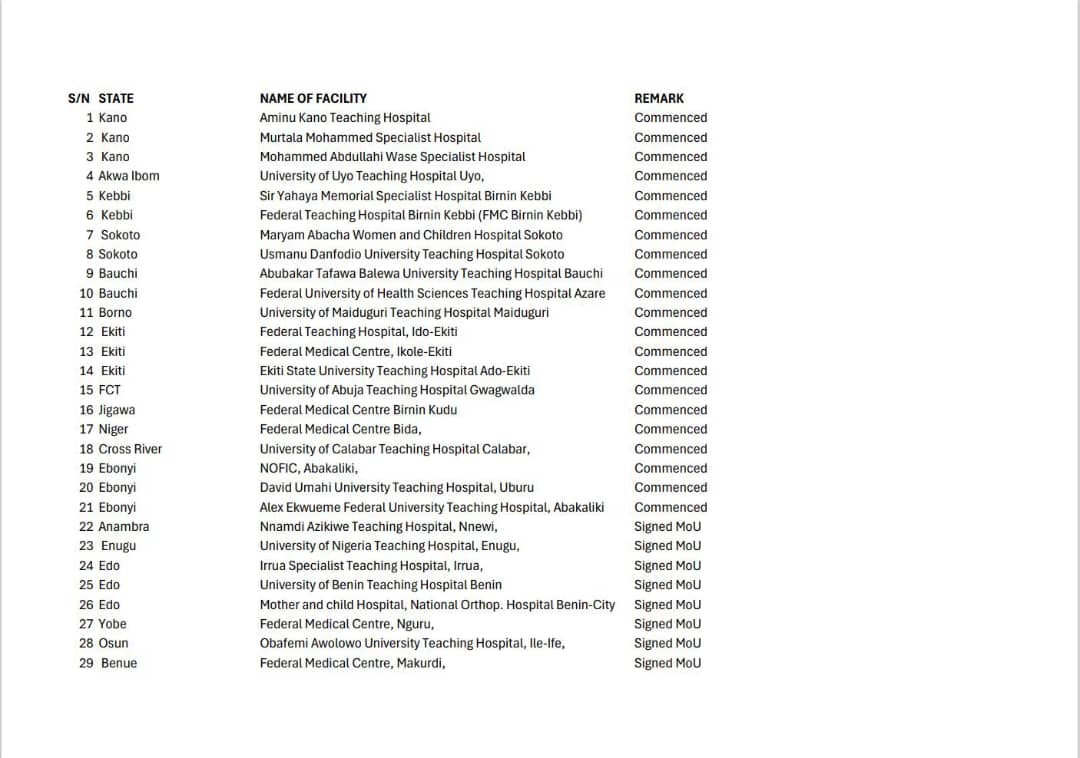
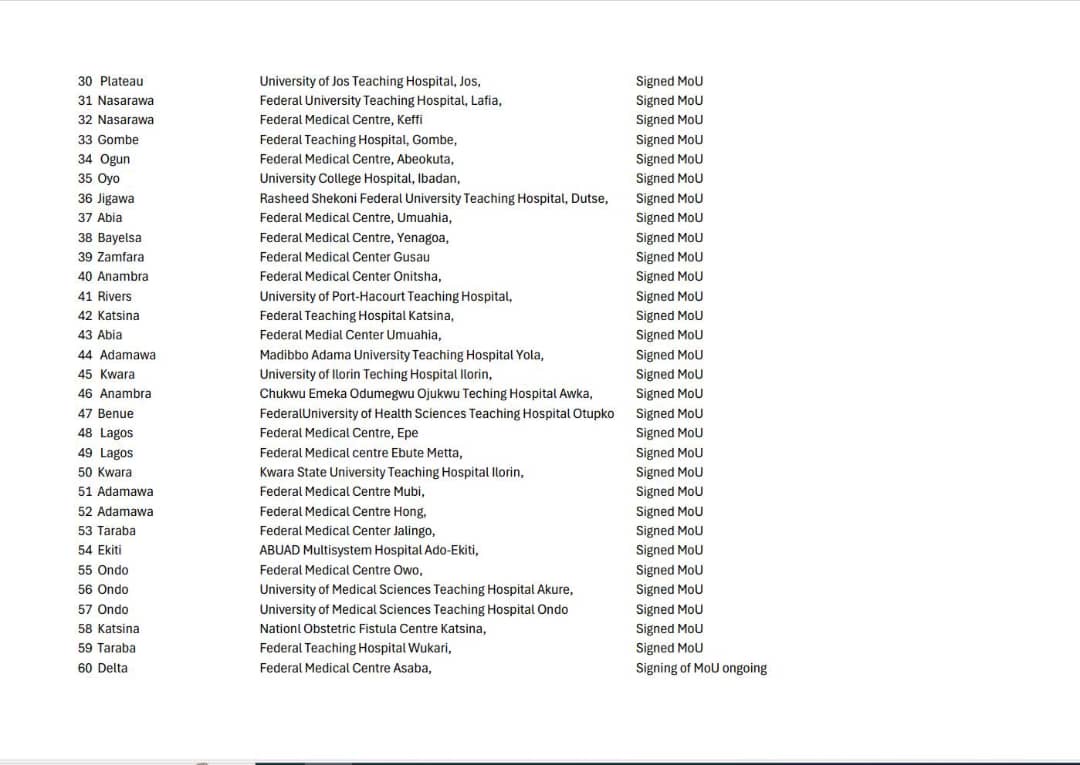
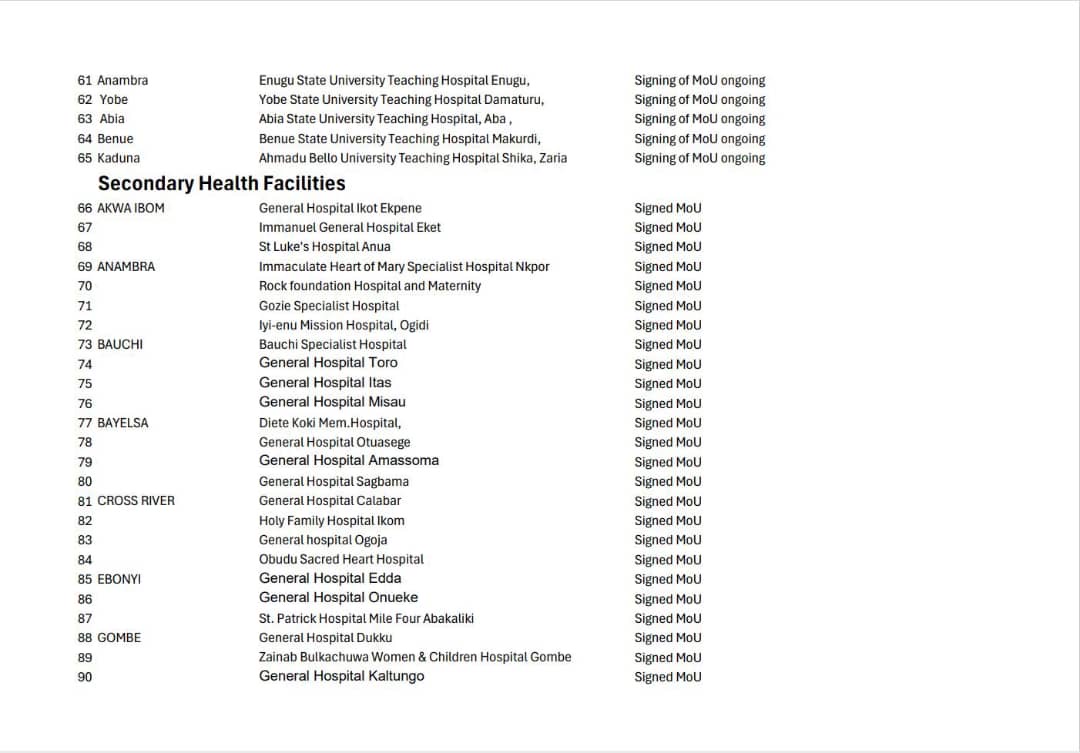
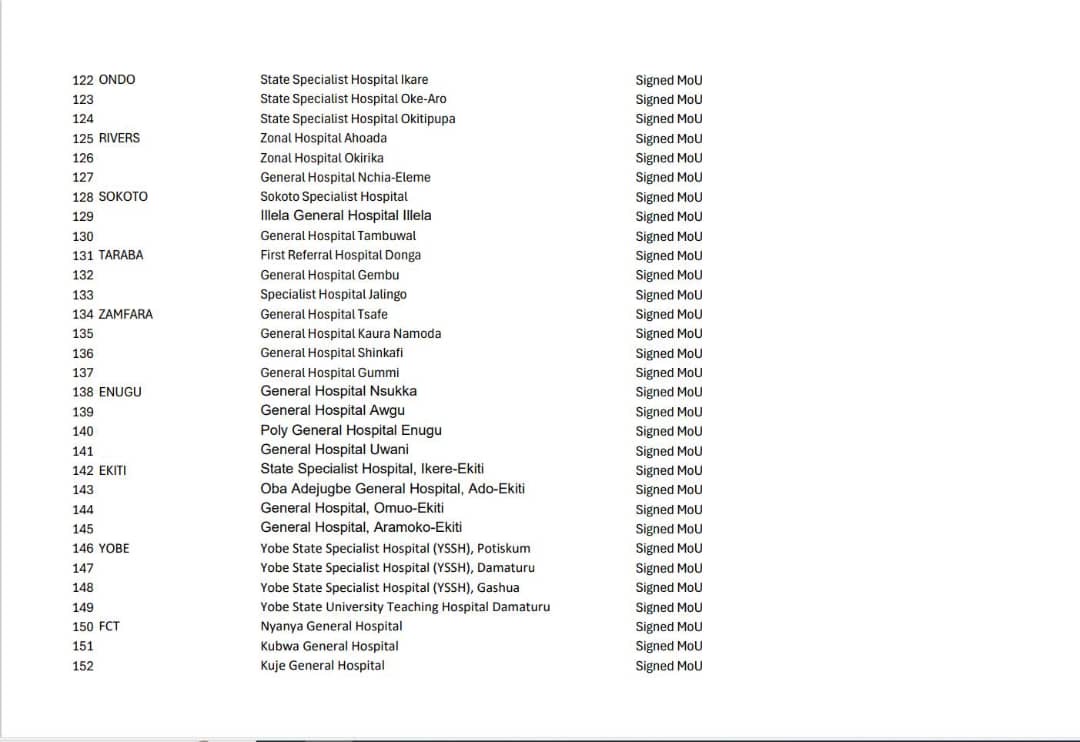
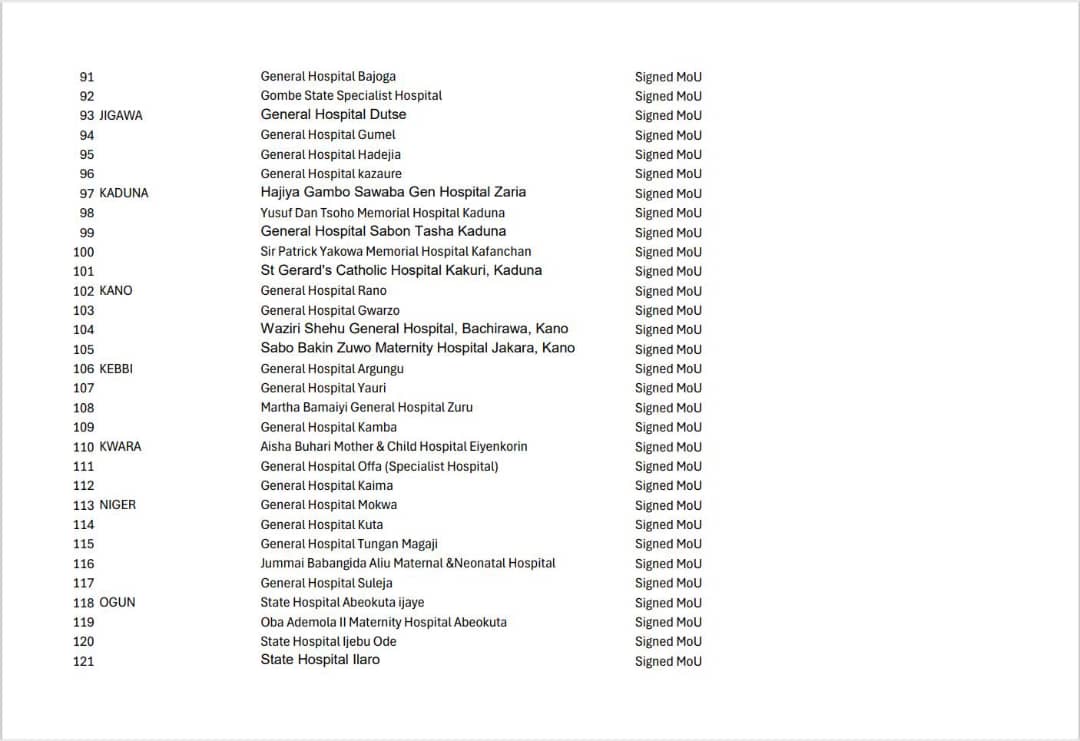
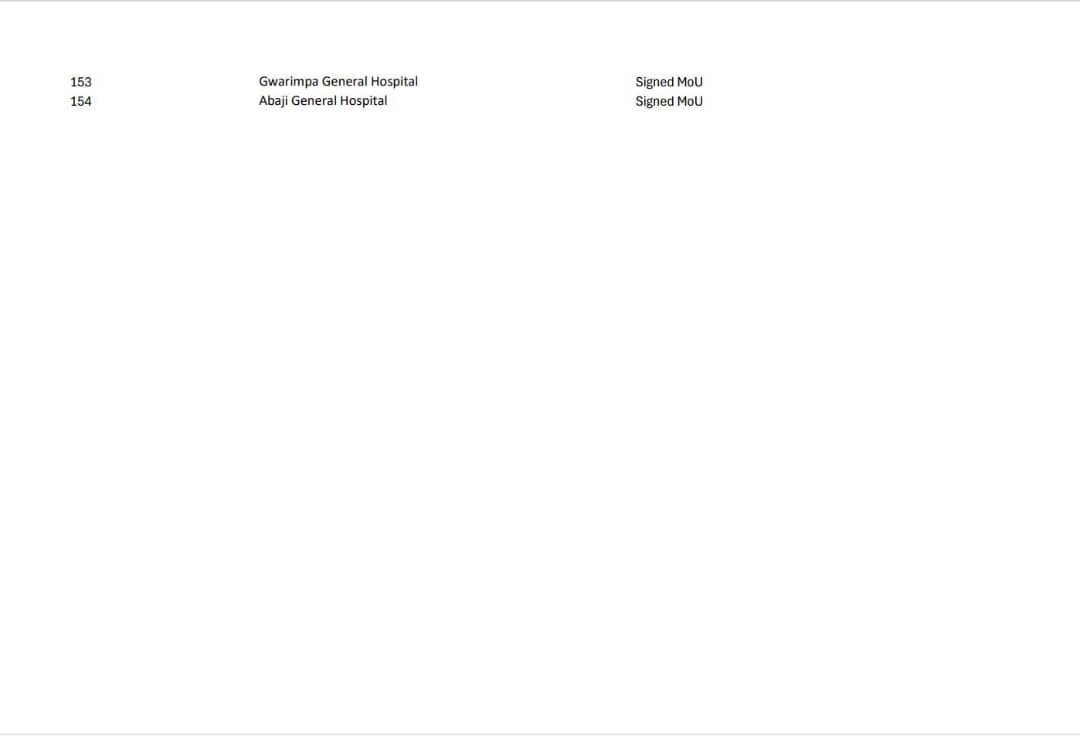
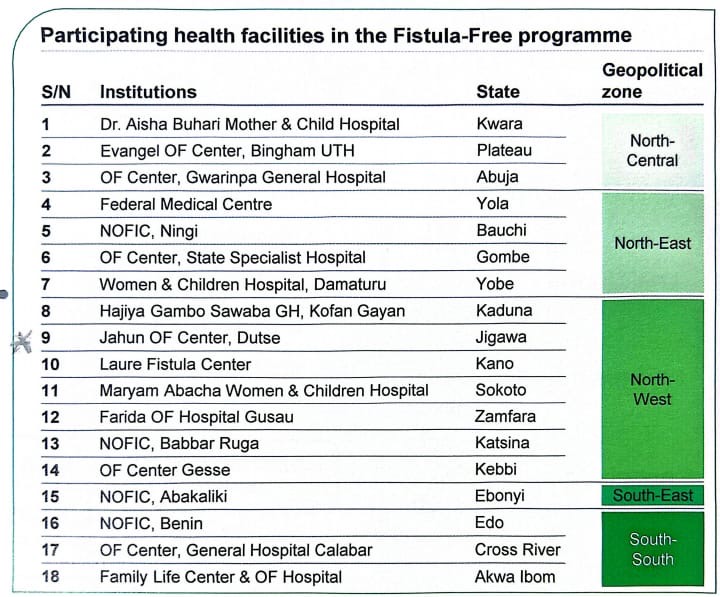
Former Nigerian President, Dr. Goodluck Ebele Jonathan made an iconic quote that has since gone into the political lexicon of the country’s history: “My political ambition is not worth the blood of any Nigerian”. It presupposes that Jonathan would rather not pursue his ambition if such would lead to any violence.
In the heat of the Boko Haram terror attacks, Jonathan also came up with yet another assertion that he had not used one tenth of his power. This forced many to ask, why crave for political position if you can’t exert the power thereof? Jonathan did not last in the office as President. He was booted out. He is an Ijaw man of Niger Delta extraction.
Rivers state, Siminalayi Fubara does not need to speak out that he does not need to use one tenth of his constitutional power as governor. The world has seen it all. And it is counted for him as weakness, hence the escalation of crisis in the state.
Years before his death, former petroleum minister, Professor Tam David West had once described Jonathan as “the weakest President” Nigeria ever produced. But Rivers people have since come to acquiesce themselves with the fact that the leadership of government in Rivers state is taking shade under the tree of weakness while professing the path of peace. And the peace is pyrrhic.
Pundits have averred that since October 29, 2023 when the crisis began in the state with the threat of impeachment, Governor Fubara failed to exert his power and nib it in the bud once and for all. While he keeps hoping that there would be a political solution some day, the opposition was swinging from post to post looking for where to nail him . They appear to be succeeding from recent developments especially with the recent Supreme Court ‘5-0’ judgment.
Lack Of Consultation
Sources within government circle in the state had informed that the governor would rather choose to carry the gauntlet alone without any botheration. The source noted that the man in the Bricks House does not care about some of the elders who stick out their necks to fight for his political survival. “Even a governor of a nearby state would call him, the man would not answer. He does not relate well with the leadership of the ethnic nationalities in the region who are solidly behind him in this fight”.
Governor Fubara knows that there is a bigger masquerade behind the Minister of the federal capital territory, FCT, Nyesom Wike, stoking the fire of crisis in the state. He knows the masquerade would not listen to him for obvious reasons. But there are distinguished Nigerians like former President Olusegun Obasanjo, General Ibrahim Babangida, General Abdulsalami Abubakar, Sultan of Sokoto among others. But “Oga will not want to consult anybody”, he said.
He went on to reveal that “even when Papa Edwin Clarke was alive, am not sure Oga visited him one day despite the late man’s stout defence of his government”. The Governor chooses to surround himself with political feather weights who cannot rise up when occasion calls. They are supporters of the former Vice President, Atiku Abubakar. In 2023 these men were chased out of Rivers state to Abuja by Wike. When the table turned, Wike moved to Abuja as a minister while they returned to Port Harcourt to pitch tent with Fubara. Nothing to offer.
Miserly
Governor Fubara is known to be “a nice man”. Another source put it this way: “Fubara is generous. However, this generosity does not seem to reflect or show in the politics of the state. The governor has reportedly said that the revenue of the state is to develop Rivers for the betterment of the people. This is good. We support him for that. But he is fighting a survival battle and he needs to fight. Until lately, he was not doing that. The Supreme Court judgment appears to have woken him up. But how far can he go? He has lost huge grounds.’
A member of the Elders Council in Rivers state had rebuked the governor for being “too stingy with money”. According to him, “last Christmas, not even a grain of rice from this government despite our support for him. Whatever we are doing, we are not doing it because of Fubara but for Rivers state. We like peace and not war”.
Peace Moves
A prominent retired Army officer from the north was said to have sent emissaries to the Governor to broker peace in the state. He turned it down. Though the man’s move was predicated on his interest in the oil well in Rivers, many northerners would definitely love to side with Fubara in the ongoing political quagmire just to spite Wike who is seen as Tinubu’s strongest man in the south-south region.
“Yes, the general sent some persons to come to Port Harcourt to meet with the Governor. They could not. Maybe the governor was not willing to receive them. The effort is still on. We believe that he will see the reason to meet with the team and douse tension in the state”, the source said. “The governor appears to have made the fight an Ijaw affair. This is not an Ijaw fight. It is a fight for Rivers people and all lovers of peace and uprightness. This explains why the Governor has to come out firm and establish his authority to prove to all that he is fully in charge of governance in the state”, he said.
Nevertheless, Comrade Franklin Ntekim believes that Governor Fubara’s mien disposition should not be taken for docility. “I believe that it is his own strategy. If you look at it clearly, the governor had been winning the war until the Supreme Court came out with that controversial judgment. He is not weak but a very calculative person”.
Countering Franklin’s position, a social commentator, Comrade Gregory Akpan fumed that if it was not a sign of weakness or fear “how come the Governor had five consolidated cases in the Supreme Court and he could put up any fight and he lost them all. The courts are operated by human beings. Did his men fight to present quality and sound arguments and make noise against possible injustice that is common in our system?”
Double Ultimatum
Arising from the Supreme Court judgment which reinstated them as the “valid” members of the House of Assembly, Martins Amaewhule and the 26 other lawmakers on Monday ordered the Governor to present the 2025 budget before the House within 48 hours.
That ultimatum expired on Wednesday midnight only for another ultimatum to sack all Commissioners and political appointees who were not screened and confirmed by Amaewhule within another 48 hours. The House ordered the Governor to forward another list of nominees to the Assembly for proper screening to fill all vacant positions in the state executive council.
Governor Fubara had since denied ever seeing any letter asking him to present the budget. In a letter by the secretary to the state government, SSG, Dr Tammy Danagogo, the Governor said such letter was never brought to his office, hence, he could not respond to anything in social media space.
The two quick ultimatums issued out by Amaewhule are an indication that the House was in a hurry to get the Governor impeached. The battle line is now drawn. Interesting events are expected to unfold as the days go by.
Support Base
Governor Fubara has been enjoying a robust support since the political fight between him and Wike broke out in 2023. The show of solidarity has never been because of the moves by the governor but largely because of their interest in the state. Such groups as the pan Niger Delta Elders Forum, PANDEF, Ijaw national Congress, INC, Ijaw Youth Council, IYC and many more are solidly behind the Governor. President of INC, Professor Benjamin Okaba in his recent press statement warned on dire consequences if Fubara is impeached by the pro-Wike lawmakers.
The leadership of IYC from the eastern zone said “the purported 48-hour ultimatum issued to the Governor, Sir Siminialayi Fubara, by the defected Martins Amawhule-led House of Assembly to present the 2025 budget is a clear indication of an orchestrated effort to create chaos and potentially impeach the governor. This is not only an attack on our leadership but also an affront to the will of the Rivers people who have entrusted their governance to one of our own.
“The IYC firmly warns that we will not stand by and allow detractors to steal this mandate. We are committed to defending our rights and ensuring that the voices of the Ijaw people are heard and respected”.
INC on its part recalled that “In 2003, when Marshall Harry backed Sergeant Awuse’s governorship ambition, it was not Awuse but Harry himself who was assassinated, marking a painful loss for the Ijaw people. By 2007, Ijaw leaders such as Soboma George and Farrah Dagogo played a decisive role in securing victory for Sir Celestine Omehia, while Prince Igodo, a Kalabari-Ijaw warlord, was killed during Omehia’s swearing-in to prevent security breaches”.
He went on to recall that “in 2011, when Rotimi Amaechi sought to nominate Pastor Tonye Cole as a minister, Dame Patience Jonathan, the wife of then-President Goodluck Jonathan, ensured that Nyesom Wike took the slot instead”. The INC lamented that despite these consistent sacrifices by the Ijaw people, an Ikwerre political elite now seeks to frustrate the first riverine governor in decades.
The body stated that the Ijaw people will defend Governor Fubara “with every pint of blood in their veins”, emphasizing that they would not stand by and allow their long-awaited tenure to be truncated.
Prof. Okaba also cautioned that while the INC has worked tirelessly to preserve peace in the Niger Delta, leading to increased oil production and revenue for the nation, regrettably, the same resources are now being used to marginalize the Ijaw people.
Issuing a direct warning to President Bola Ahmed Tinubu, the INC insisted that the ongoing political crisis in Rivers State must not be treated as ordinary politicking. Prof. Okaba stressed that the Ijaw people, numbering over 40 million worldwide, would not tolerate any attempt to undermine their place in the Nigerian politics.
He further stated that while it enjoins Governor Fubara to, in the spirit of sportsmanship, work with all duly constituted arms of government in the State, “if Governor Fubara’s tenure is truncated by the Amaewhule-led Assembly or anybody else, the INC cannot guarantee the sustenance of the current peace in the Niger Delta, nor the continued rise in oil production.
Division Among Ijaws
Meanwhile, there appears to be a sharp division among the Ijaws following a recent call by the Rivers rescue Movement, RRM, rebuking the utterances of the IYC and INC leadership over the crisis in the state.
This is as the leadership of the group after an extensive deliberations with Ijaw leaders expressed sadness over the recent statements credited to the President of INC, Prof Benjamin Okaba, Chief Sara Igbe, Alhaji Asari Dokubo and some leaders of IYC. Speaking to a cross section of journalist the secretary of RRM said for them as a group those statements were not only reckless, thoughtless and provocative but also a grave threat to national security and peaceful coexistence.
“As a group that stand for peace, justice and a united Nigeria, we believe no individual or organization has the monopoly of violence, so we are calling on the Nigerian Security agencies to arrest these individuals or any other person or group that will threaten the Nigerian State, it’s economy or people.
“RRM is wondering if the purveyors of these message of destruction or economic sabotage are more Ijaws than the 9 grateful Rivers State House of Assembly members from the IJAW extraction that have been maltreated, humiliated and denied all their allowances by the Gov Fubara administration for over a year when no court had declared their seats vacant?
“RRM want to make it clear that we run a constitutional democracy guided by laws and the highest court of the land (The Supreme Court) has spoken and Gov Fubara is bound to obey the ruling. Furthermore, the public is hereby advised to disregard their empty, watery and old fashioned threat because the laws of Nigeria is always supreme”, the group said in a statement.
Why Fubara May Survive Impeachment
Every impeachment takes place in line with the constitution. With 27 lawmakers, it will be a very easy process to vote for all the impeachable offences committed by the Governor. But where the process will likely get stuck is when the Chief Judge, Justice Simeon Amadi would be called upon to set up a 7-man panel to investigate those offences.
Being a very principled man who is said to be neutral and “a decent gentleman”, people doubt if the CJ could be compromised.
The National Assembly, once envisioned as the hallowed cornerstone of Nigeria’s democracy, has descended into a circus of disgrace. Allegations of sexual harassment, tear gas, and paid protesters have stripped the institution of its dignity.
This week, the streets of Abuja witnessed a spectacle that has left Nigerians questioning the integrity of their lawmakers: hired crowds clashing in a Nollywood-style drama, ignited by a bitter feud between Senator Natasha Akpoti-Uduaghan and Senate President Godswill Akpabio.
The chaos erupted after Akpoti-Uduaghan accused Akpabio of sexual harassment, first on national television and then in an open plenary session—an unprecedented moment in Nigeria’s democratic history since 1999. What followed was not a sober investigation or a dignified response but a shameful display of sponsored protests, tear gas canisters lobbed at demonstrators, and a legislative body more concerned with technicalities than truth.
Veteran journalist Reuben Abati, co-host of Arise TV’s The Morning Show, did not mince words when he called it ‘a pivotal moment’ that exposed the National Assembly to global ridicule.
Abati thundered on air, “It was a pivotal moment for the Senate of the Federal Republic of Nigeria and, by extension, the whole of the National Assembly. For the first time since our return to democracy in 1999, we have the chairman of the National Assembly, the third-highest-ranking official in the country, being accused in open plenary of sexual harassment. What makes it even sadder is that this was done in the presence of a UK parliamentary delegation led by Kate Osamor, the MP for Edmonton.”
The optics were damning. As British parliamentarians watched in disbelief, the Senate floor became a battleground of egos, with Akpoti-Uduaghan’s petition dismissed by the Ethics Committee as ‘Dead on Arrival’ due to procedural flaws and a parallel court case.
Outside, the streets of Abuja turned into a marketplace of loyalty, where poverty was weaponised to fuel rival protests. Women clad in coordinated outfits waved designer banners—one group chanting in support of Akpabio, another backing Akpoti-Uduaghan.
Viral videos laid bare the farce. In one clip circulating on social media, a female interviewer confronted a protester supporting Akpabio. “Why are you supporting Senator Akpabio?” the voice behind the camera asked.
The woman hesitated before replying, “Yes, I didn’t see anything wrong with what they are saying. But I don’t know much about the details.”
Pressed further by the interviewer, “You don’t know the whole story. Do you support Senator Natasha?” the Akpabio supporter admitted, “I don’t really know the whole story.”
The interviewer persisted: “So, why did you come out here today?” The response was telling: “I came out today because they said we should come and protest that Akpabio should remain as our Senate President.”
Her words, devoid of conviction, revealed the hollow core of the demonstration—she was there not out of principle, but because she was instructed to attend.
Other clips captured similar absurdity: a protester in the Akpabio camp lamented, “Akpabio, don’t disappoint us. They’ve given us only water,” while another woman confessed, “We were paid 5,000 naira to come here.”
Abati’s outrage cut through the noise. He remarked, “We watched the spectacle, the Nollywood-style engagement of sponsored protesters in Nigeria—one party carrying placards and banners supporting one side, the other side supporting the opposite. It’s very bad optics, and the fact that the National Assembly is bringing us this embarrassment should be condemned by every Nigerian.”
The allegations themselves are grave. Akpoti-Uduaghan, representing Kogi Central, claimed Akpabio made inappropriate advances, a charge he vehemently denied, citing his upbringing by a single mother as evidence of his respect for women. Yet, the Senate’s response has been less about seeking truth and more about dodging accountability.
Senators debated arcane rules—Order 40, Sub 4, and others—arguing that Akpoti-Uduaghan’s petition was invalid because she signed it herself and first aired her grievances on Arise TV rather than on the Senate floor.
“Perhaps the floor of the Senate should have been the place to start the petition, rather than in the media,” Abati noted, acknowledging her tactical misstep but refusing to let the institution off the hook.
Meanwhile, the protests revealed a deeper rot: a nation where poverty has turned the masses into pawns. For as little as N5,000 — barely enough to prepare a decent pot of soup — hundreds of women flooded the streets, their placards as hollow as their motivations.
“Which one concerns them? Someone made an allegation of sexual harassment, and women are coming out to protest in support of the accused. It doesn’t make any sense,” asked Grace Ojo, a petty trader who witnessed the chaos near the National Assembly gate.
The tear-gassing of protesters only deepened the disgrace. As rival camps clashed, security forces unleashed canisters, scattering the crowds and leaving a cloud of shame hanging over the Assembly.
“What kind of nonsense is this? If any person has money, he can bring anybody to come and protest. They’ve made a mockery of protest in Nigeria,” fumed Godson Okeke, a civil servant whose office at the Federal Secretariat Complex in Abuja is near the National Assembly gate.
Abati echoed this sentiment, urging lawmakers to focus on their duty rather than theatrics.
“This is a matter of urgent national interest to the extent that the representatives of the Nigerian people have exposed that institution to ridicule.
“Nigerians want to know what the truth is. Is Natasha Akpoti-Uduaghan a witness of truth? Is Akpabio himself a witness of truth? The Senators should refrain from blackmailing one another and the kind of personal attacks that have been going on,” he said.
The irony is stark. An institution tasked with making laws has become a law unto itself, dodging accountability while the poor are bought to prop up its farce.
Amina Yusuf, a rights activist and gender advocate in Abuja, lamented, “Poverty is being weaponised in Nigeria, and the poor people are part of our problem. The masses are easily bought. You can mess up in the church, pay 5,000 naira, and they’ll line up to support you.”
As the dust settles, the National Assembly stands at a crossroads. Will it rise above this disgrace to address the substance of Akpoti-Uduaghan’s claims, or will it hide behind rules and hired crowds?
For now, the answer seems clear: Nigeria’s lawmakers have turned their chamber into a theatre of shame, and the world is watching.
“Lawmakers should know they have to make laws, not engage in all this nonsense,” Abati summarised. For a nation desperate for leadership, his words are both a plea and a warning.



